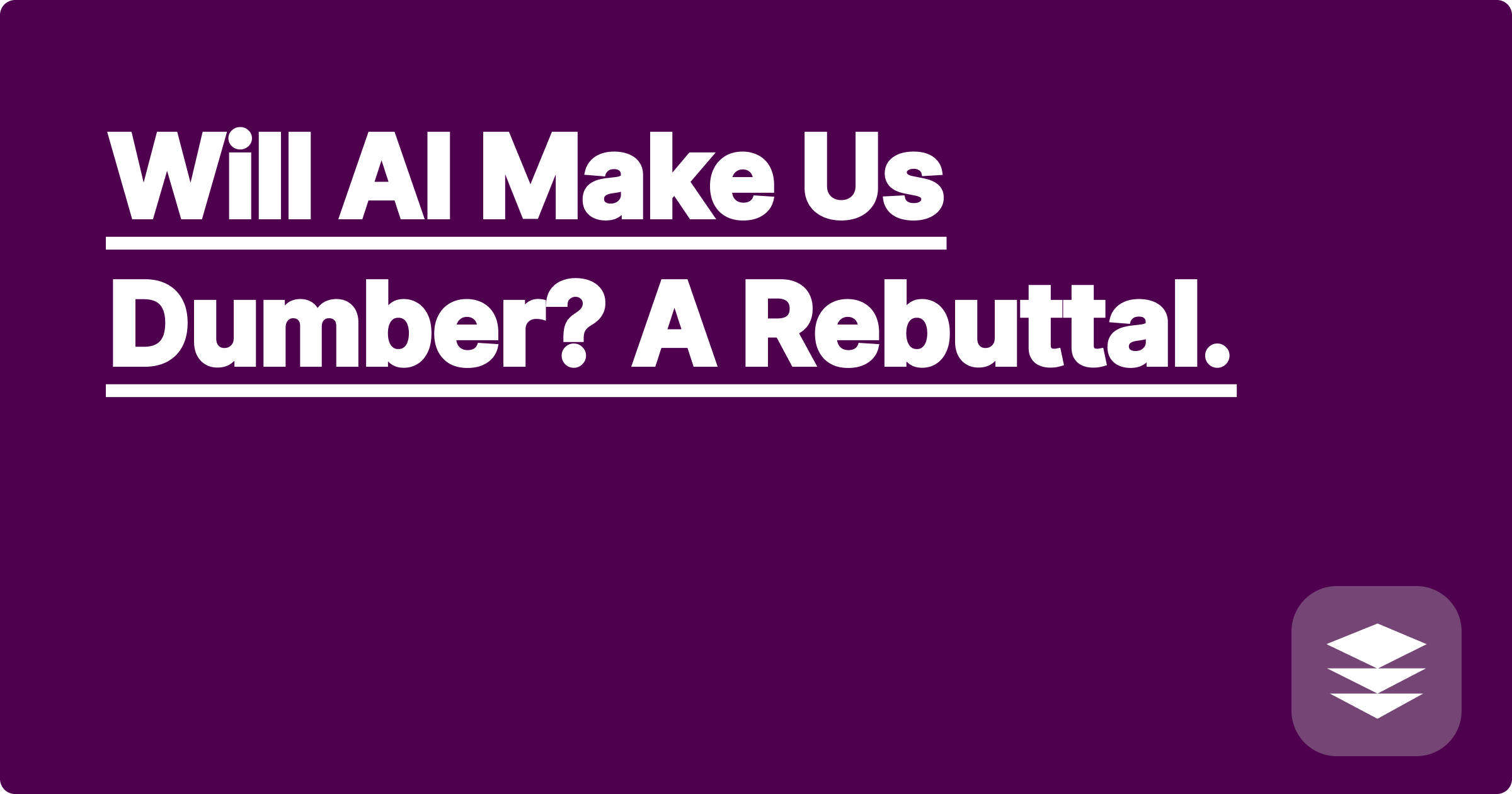
It's a fear as old as technology itself. When Socrates saw the rise of written language, he worried it would destroy our memory. When the calculator became common in schools, critics claimed it would make students incapable of basic arithmetic. And today, with the rise of powerful AI, the same panic has returned: does ai make you dumber? Will we become so reliant on these tools that our own intelligence will atrophy?
The argument is simple: if you don't have to struggle to solve a math problem, or memorize a historical fact, or write a coherent sentence, those mental muscles will weaken. This is a legitimate concern, but it's based on a fundamental misunderstanding of how technology and intelligence interact. The relationship isn't one of replacement; it's one of "cognitive offloading."
Cognitive offloading is the practice of using an external tool to handle a low-level cognitive task in order to free up mental resources for higher-level tasks.
[Image: A diagram of a human brain. A section labeled "Low-Level Tasks (Arithmetic, Memorization)" is shown being moved out of the brain and into a "GPAI AI" cloud icon. The now-freed-up space in the brain is relabeled "High-Level Thought (Creativity, Strategy, Synthesis)". Alt-text: A visual explaining how AI and technology enhance intelligence through cognitive offloading.]
An AI assistant like the GPAI Suite doesn't make you dumber; it focuses your intelligence where it has the most impact.
The measure of intelligence in the 21st century will not be what you can do without tools. It will be what you can achieve with them. The most successful people will be those who master the art of the human-AI partnership. They will know which tasks to perform themselves and which tasks to delegate to their AI assistant. This ability to leverage technology to augment one's own intelligence is the new definition of "smart."
A: You are already dependent on countless technologies, from the alphabet to the internet. Dependency itself isn't the problem. The key is to be a master of your tools, not a slave to them. Understand how they work, know their limitations, and use them intentionally to achieve your own goals.
A: There is always a transition period. We did lose the skill of using an abacus, but we gained the ability to do the complex calculations that sent us to the moon. The same will be true of AI. We may become less practiced at certain types of manual algebra, but we will become far more skilled at high-level problem formulation and data analysis.
AI won't make us dumber. It will make us differently intelligent. It will relieve us of the cognitive burdens that have historically held us back and free us to be more creative, more strategic, and more human. The future is not about what your brain can hold, but about what your mind can achieve when partnered with a powerful tool.
[Start building a new kind of intelligence. Embrace your AI partner with the GPAI Suite. Sign up for 100 free credits.]
Is 'Knowing' Obsolete? The Future of Education in the Age of AI
How AI Can Help Us Rediscover the 'Play' in Learning
Your Personal 'Anti-Bias' Assistant: Using AI to Challenge Your Own Assumptions
The Ethics of 'Perfect' Submissions: A Conversation About the 'Humanizer'
Beyond STEM: How an AI Solver Can Help with Philosophy and Logic Proofs
The 'Forgetting Curve' is Now Optional: How AI Creates Your External Memory
Can an AI Have a 'Eureka!' Moment? Exploring a Model's Inner Workings
From Information Scarcity to Abundance: A New Skillset is Required
Just Trust Me, Bro': Why Showing Your Work (with AI) Builds Credibility